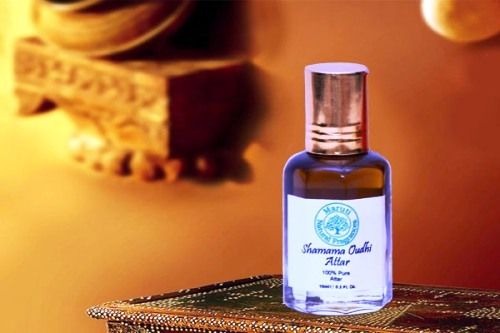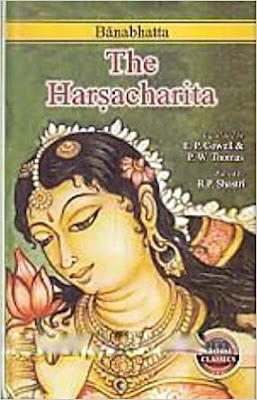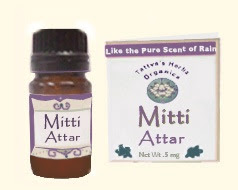 Shamama is a kind of perfume (itr or 'Ittar' or 'attar' - in Hindi) manufactured in Kannuaj, an ancient town located near the confluence of the Ganga and Kali rivers in Uttar Pradesh, India. Kannuaj is known as the perfume capital of India. An estimated 40 thousand out of 70 thousand residents of the city are engaged in the perfume industry in one way or the other. From a very early age, Kannuaj is producing several Perfumes by extracting fragrances from different flowers and herbs like rose, lavender, jasmine, kewra Bela marigold, saffron, juniper berry, cardamom, clove, etc.
Shamama is a kind of perfume (itr or 'Ittar' or 'attar' - in Hindi) manufactured in Kannuaj, an ancient town located near the confluence of the Ganga and Kali rivers in Uttar Pradesh, India. Kannuaj is known as the perfume capital of India. An estimated 40 thousand out of 70 thousand residents of the city are engaged in the perfume industry in one way or the other. From a very early age, Kannuaj is producing several Perfumes by extracting fragrances from different flowers and herbs like rose, lavender, jasmine, kewra Bela marigold, saffron, juniper berry, cardamom, clove, etc.
The earliest mention of this city is found in the famous book "HarshCharita" written by Bana Bhatta who was the court poet of king Harshvardhan who ruled north India from 606 AD to 647AD. And in the Mughal patronage, the perfume industry of Kannauj had reached its peak.
In Kannuaj the perfume is manufactured by using the traditional method called "Deg Bhapka" which the perfumers have learned from their ancestors. This is an eco- friendly process that only requires naturally occurring substances in manufacturing, no alcohol is used in the process, sandalwood oil is used as the base oil, and the equipment used in the process is made up of copper and bamboo sticks. Even the waste product can be recycled like the used rose or jasmine petals etc. and even the burnt wood remains are used in Agarbatti (incense sticks) industry. The wastewater which is drained out after the manufacturing process is so pure that the workers often take bath in it.
There are two kinds of perfume are manufactured in Kannuaj which are
- Floral perfume - manufactured by using flowers like rose, Bela, jasmine, etc.
- Herbal perfume - manufactured by using herbs like Sungandh Mantri, cardamom, clove, etc.
Manufacturing Shamama is a very complex process that involves repeated distillations. First of all 7 to 8 spices are taken in still (called deg) with water and fire is made to boil water. The water steam comes through a bamboo pipe (called Chonga) into the receiver (Bhapka) in which a special layer of oil is made to catch aroma molecules. Traditionally, the sandalwood oil was used for layering the receivers but now due to the shortage of sandalwood oil, some other oil like substances, like DOP (di-octyl phthalate) or liquid paraffin is being used. The process may take 5, 8, or even 25 days. Higher the number of days, the higher the concentration of Shamama and the better the quality of Shamama we get.
To make the Shamama extra-quality itr, the crude Shamama oil is collected after 20 days of the hydro-distillation stage, and then it goes through the "Patila process". Patila is a different type of copper utensil smaller than deg in which the crude oil is heated for 3 to 5 days with other powdered spices and herbs and other oils. After being heated, it rests for two days in the same Patila, then after it is being macerated for 15-20 days. For macerating the Shamama, perfumers use traditional camel leather vessels named "koppies", however, glass or copper vessels can also be used. But koppies are more preferred because they are porous and can allow water vapor to escape which makes the Shamama more concentrated. Sometimes, oud (agarwood, aloeswood, or eaglewood) oil is also added on the request of the customer.
Not only Shamama, but Kannuaj is the home of another extraordinary perfume which is known as "Mitti attar" (petrichor perfume). This perfume is the wonder in the world of perfumes. Petrichor is the loamy smell of first rain which we all have wondered to capture in bottles but the perfumers of the Kannuaj made it possible. The process to manufacture it is the same deg Bhapka process but in this, no flowers or herbs are used. In the place of flowers and herbs, clay is used. Clay is extracted from the topsoil and baked just like the bricks, then it goes through the hydro- distillation process and the Patila process, just like the Shamama. But the Patila process in this is a compulsory one.
The Shamama and the other itr's produced here are not only used as perfumes but also in preparing other things like incense sticks (Agarbatti), cosmetics like creams, shampoos, lotions, sunscreens, deodorants, soaps, etc. Itrr is also used in worship ceremonies. Itr's like those of rose and kewra is also used in traditional sweets for adding flavors. they are widely used in other food items such as ice creams, and drinks. These perfumes can also be used for medical purposes, they are good to treat headaches, rheumatism ( pain and inflammation in joints, muscles, and surrounding soft tissues), and gout pains.
Indeed these perfumes are pure, produced by using natural raw material, have no harmful effects, and are of high quality, but they are declining rapidly. As we have seen that these processes of manufacturing perfumes are very labor-intensive and time-consuming, these factors make the perfumes a little expensive in comparison to those alcohol-based perfumes and scent which are made in large quantities in factories.
Due to the restrictions on sandalwood harvesting, the sandalwood oil has become expensive, which directly affects the price of the itr. When a person can buy the same fragrance in about Rs200 in a bottle of deodorants and scents, why would he or she go for the itr which will cost him more than one thousand rupees for lesser quantity.
Not only the ban on sandalwood oil but the recent bans on pan masala (chewing tobacco) have also affected the demand of Shamama, as these sectors buy close to 80% of all it manufactured in the country. Shamama is used in these products to add flavors
This perfume industry of Kannuaj has, directly or indirectly, provided employment to a larger section and it also has the traditional importance attached to it. So it is very necessary to revive this industry. Many producers have joined the online platforms to sell their products in the bigger market worldwide and have seen positive results. This is a good step and should be taken by each perfume producer in Kannuaj to expand their markets. As mentioned earlier, this itr has medical significance, but there is hardly any study on them. There is a need to encourage scientific research in this field. So that we can gain some more profits from this ancient gift of our ancestors.
Ancient method of hydro-distillation used by the #Kannauj perfume makers. pic.twitter.com/ZSDafQHODZ
— Radhika Parashar (@_RadhikaReports) July 9, 2020




